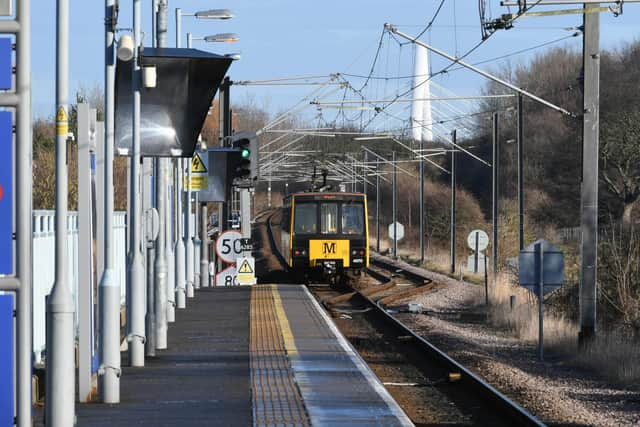Fears coronavirus crisis could set public transport back by decades - transport chief's worries over gridlock and pollution
and live on Freeview channel 276
Despite plans to ease lockdown, social distancing restrictions in place to limit the spread of COVID-19 are expected to see buses and the Tyne and Wear Metro restricted to barely a quarter of their pre-pandemic capacity.
It raises the prospect of some commuters being forced into their cars, prompting concerns about the wider impact it could have on traffic, congestion and pollution.


Advertisement
Hide AdAdvertisement
Hide Ad“We will be able to encourage more people to walk or cycle to their destinations, but even if we’re successful in that it will only take part of the load,” said Tobyn Hughes, managing director of Transport North East and Metro operator Nexus.
“If demand returns there will be a large number of people who used to use public transport and that could lead to a surge in road trips.
“It’s a key issue for the area to manage – we need to manage our transport networks as an integrated whole.
“What we don’t want to do is go back several decades and have the area even more congested by polluting transport than it was before.”
Advertisement
Hide AdAdvertisement
Hide AdHughes was speaking at a meeting of the North East Joint Transport Committee, which was held remotely due to social distancing guidelines and broadcast via Youtube.
Face coverings are due to become compulsory on all UK public transport from Monday June 15, in addition to social distancing rules.
And while North East transport staff say most travellers are adhering to current rules to stay two metres from, less than a fifth have been observed wearing masks so far.
About 300,000 people who would usually travel by public transport every day are expected to forgo buses and Metros, mostly in favour of walking, cycling, a switch to home working or a general reluctance to travel.
Advertisement
Hide AdAdvertisement
Hide AdBut a further 100,000 are expected to switch to cars, with town and city centres affected to be ‘disproportionately’ affected.
A report for the panel added: “We are concerned that our roads will rapidly become gridlocked.
“Air quality and carbon emissions will worsen, productivity will be reduced, and road-related deaths and injuries will grow.”